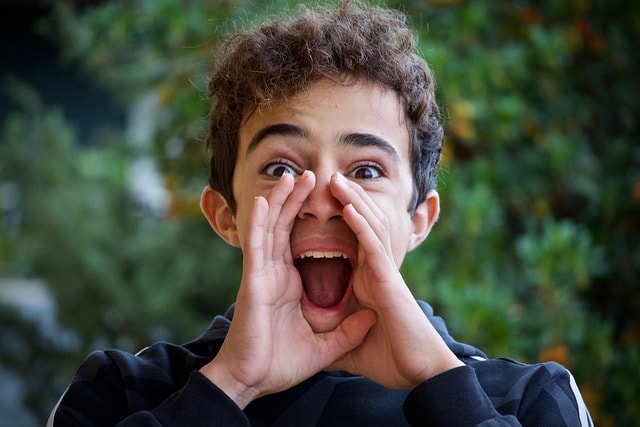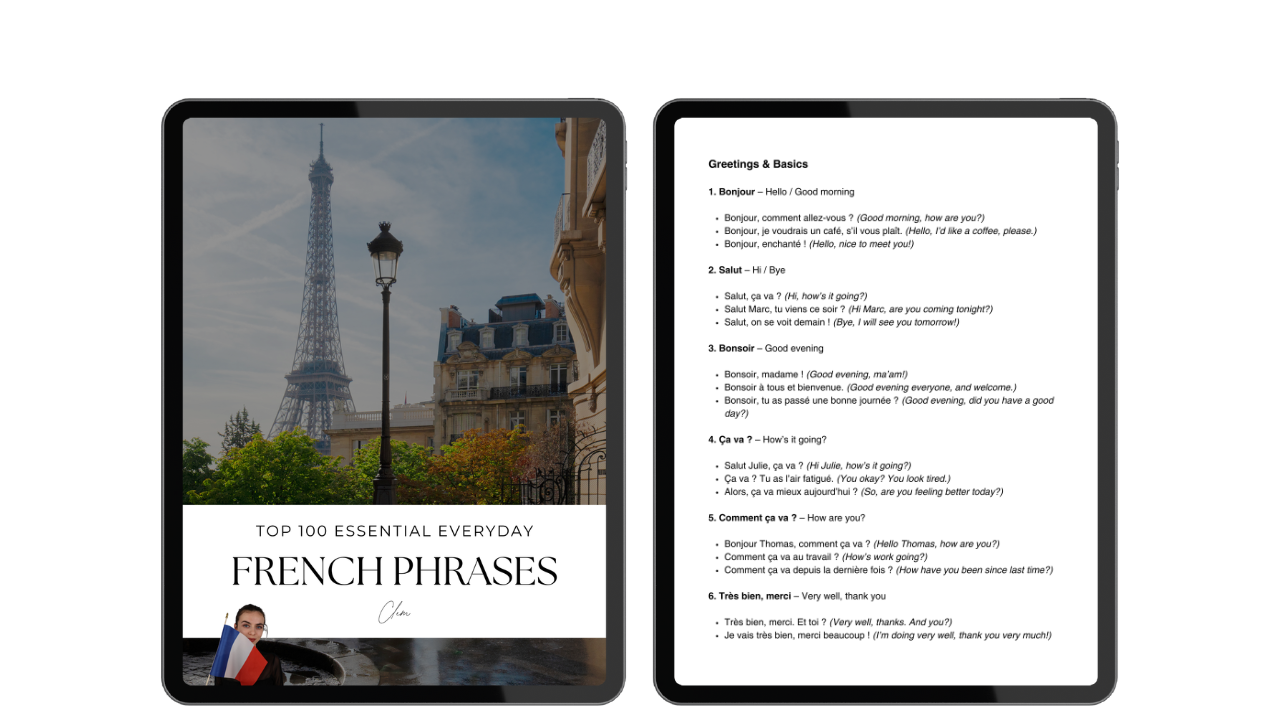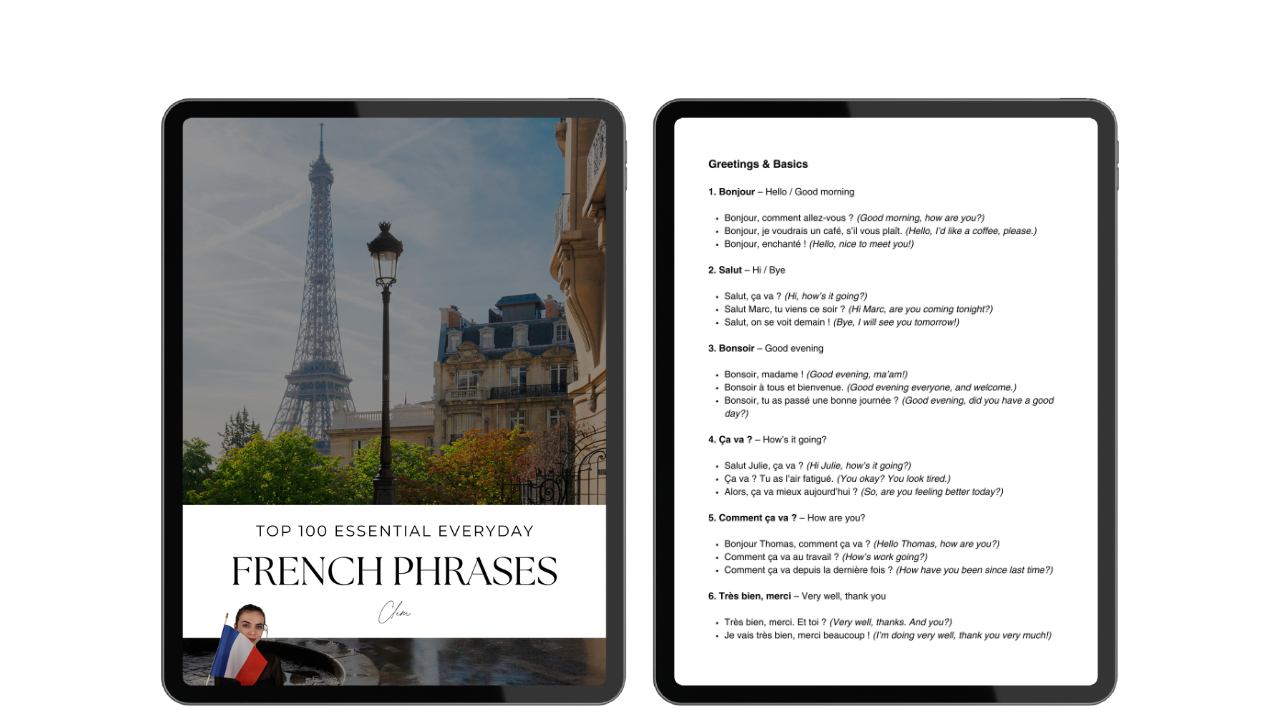
What French People Actually Say VS What Textbooks Teach
Jun 10, 2025Let’s be real for a second: learning French from a textbook is kind of like learning how to swim by reading about water. It gives you a general idea of what to expect, but the moment you dive into a real conversation with a French speaker, it’s a different world.
If you’ve ever proudly said something straight from your French course—only to be met with a puzzled look or a burst of laughter—you’re not alone. French textbooks tend to play it safe, teaching you formal phrases, perfect grammar, and vocabulary that’s technically correct but rarely used in everyday conversation.
In this post, we’re going to unpack the juicy stuff—how French people actually talk in the real world vs. what you’re taught in class. Get ready for slang, shortcuts, weird habits, and phrases you won’t find in a textbook (but absolutely should be there).
Want a clear idea of what my French course covers? Check out the full curriculum.
1. “Comment allez-vous ?” vs. “Ça va ?”

What the textbook says:
“Comment allez-vous ?” (How are you?)
What people actually say:
“Ça va ?” or even just “Ça va”
Unless you’re talking to your boss’s boss or meeting your partner’s grandmother for the first time, you probably won’t hear “Comment allez-vous ?” in everyday life. It’s polite, yes, but also a bit stiff. Most people just go with a quick “Ça va ?” (You good?) or respond with “Ouais, ça va et toi ?”
Another common way to form questions in modern spoken French is by using 'est-ce que', which offers an alternative to the traditional subject-verb inversion. This construction is particularly useful in informal conversations.
Pro tip: If someone says “Ça va ?” you can literally respond with… “Ça va.” Yes, it sounds lazy, but it’s a perfectly normal exchange.
2. “Je suis désolé(e)” vs. “Pardon” / “Oups”
What the textbook says:
“Je suis désolé(e)” (I’m sorry)
What people actually say:
“Pardon” / “Oups” / “Ah mince !”
In French class, you're taught to apologize with the formal “Je suis désolé(e).” But in real life? That’s a bit much unless you’ve run over someone’s cat. If you bump into someone on the metro or spill a drink, a simple “Pardon” or “Oups !” is usually more natural.
And if something mildly annoying happens? “Ah mince !” (literally “Oh darn!”) is your go-to. You might also hear “Zut !” but honestly, that’s more like French cartoon language at this point.
Don’t miss this post: 10 French Expressions You Can’t Translate Into English
3. “Je ne sais pas” vs. “Chais pas”

What the textbook says:
“Je ne sais pas” (I don’t know)
What people actually say:
“Chais pas” (shrug included)
French people love squishing their words together, especially in speech. “Je ne sais pas” becomes “Chais pas.” Same with “Je ne peux pas” → “J’peux pas,” and “Je ne veux pas” → “J’veux pas.”
The “ne” in negative sentences often disappears in casual conversation. So if you’re trying to sound like a native, don’t be afraid to drop it. You’ll sound much more natural.
Similarly, 'Il y a' is often pronounced quickly and casually in spoken French, with sounds being dropped or transformed. This ties into broader patterns of fast spoken French, where certain sounds and syllables are commonly altered.
4. “Je m’appelle Marie” vs. “Moi, c’est Marie”
What the textbook says:
“Je m’appelle Marie.” (My name is Marie.)
What people actually say:
“Moi, c’est Marie.” (Me? I'm Marie.)
Yes, “Je m’appelle…” is grammatically correct and polite. But when you’re meeting someone for the first time, it’s totally normal to introduce yourself more casually. “Moi, c’est [name]” is friendly and direct—kind of like saying, “I’m Sarah, by the way.”
Want a sneak peek into the course? Watch a FREE Sample French lesson right here.
5. “Il pleut” vs. “Il flotte” / “Il drache”

What the textbook says:
“Il pleut.” (It’s raining.)
What people actually say:
“Il flotte !” / “Il drache !” (It’s pouring!)
Standard French tells you it’s “Il pleut,” but step outside Paris and you’ll hear all sorts of regional slang. In the north of France and Belgium, for example, “Il drache” is super common. And “Il flotte” is used all over when it’s raining heavily.
So yes, learning weather vocab is helpful… but knowing the local lingo is what’ll earn you those “Wow, you sound French!” compliments.
6. “Je suis fatigué(e)” vs. “J’suis crevé(e)”
What the textbook says:
“Je suis fatigué(e)” (I’m tired)
What people actually say:
“J’suis crevé(e)” (I’m exhausted)
“Fatigué” works, but it’s a bit tame. If you really want to express that you're wiped out after a long day, go with “crevé(e).” It literally means “burst” or “popped,” like a balloon. In speech, the “Je suis” often contracts to “J’suis,” which is super common in everyday French.
While you're here, read this too: How Babies Learn French Faster Than Adults—And What You Can Steal From Their Strategy
7. “Oui” vs. “Ouais” / “Mouais”
What the textbook says:
“Oui” (Yes)
What people actually say:
“Ouais” (Yeah) / “Mouais” (Eh… I guess)
“Oui” is proper and fine, but “ouais” is what you’ll hear 80% of the time in conversation. It’s the relaxed, casual “yeah.” Just don’t use it in a job interview.
And “mouais”? That’s the French version of “mehh” or “I guess.” Super useful when you're not entirely convinced.
8. “Je t’aime” vs. “Je t’adore” / “Tu me manques de ouf”
What the textbook says:
“Je t’aime” (I love you)
What people actually say:
“Je t’adore” / “Tu me manques de ouf” (I’m crazy-missing you)
In real life, “Je t’aime” is heavy. It’s not thrown around lightly like “love ya!” in English. More often, you’ll hear “Je t’adore” or even playful, modern stuff like “Tu me manques de ouf” (I'm missing you like crazy). The slang “de ouf” = “de fou” = “like crazy.”
So don’t panic if your French partner hasn’t said “Je t’aime” yet—it’s not you, it’s just the culture.
9. “Je n’ai pas d’argent” vs. “J’ai pas un rond”
What the textbook says:
“Je n’ai pas d’argent.” (I don’t have money.)
What people actually say:
“J’ai pas un rond” / “Je suis fauché(e)” / “J’ai pas un sou”
There are tons of ways to say you’re broke in French—and most of them are way more colorful than “Je n’ai pas d’argent.” “Pas un rond,” “pas un sou,” and “être fauché(e)” all basically mean the same thing: no cash.
If you want to sound fluent and broke? Go with “J’suis fauché(e).”
10. “C’est intéressant” vs. “C’est chelou” / “C’est ouf” / “C’est relou”
What the textbook says:
“C’est intéressant” (That’s interesting)
What people actually say:
“C’est chelou” (That’s shady/weird)
“C’est ouf” (That’s crazy!)
“C’est relou” (That’s annoying)
French slang really shines here. Instead of blandly saying “interesting,” you’ll hear people use expressive slang. “Chelou” is “louche” (shady) in verlan (a kind of backwards slang). “Ouf” is verlan for “fou” (crazy). And “relou” = “lourd” (heavy/annoying).
Once you start spotting these, you’ll hear them everywhere—especially in cities and among younger people.
I made a FREE eBook for you! Learn the Top 100 Essential Everyday French Phrases right here.
11. “De rien” vs. “Pas de souci” / “Avec plaisir”
What the textbook says:
“De rien.” (You’re welcome)
What people actually say:
“Pas de souci” (No worries) / “Avec plaisir” (My pleasure)
“De rien” is fine, but it can feel a bit flat. “Pas de souci” is friendlier and more common—kind of like “no problem” in English. If you really enjoyed helping someone, you might even say “Avec plaisir !”
12. “Allons-y !” vs. “On y va ?”
What the textbook says:
“Allons-y !” (Let’s go!)
What people actually say:
“On y va ?” (Shall we go?)
“Allons-y” sounds like something a cartoon character would yell. It’s technically correct but feels a little over the top in regular life. “On y va ?” or just “On y va” is much more natural.
13. “Je suis en colère” vs. “J’ai les nerfs”

What the textbook says:
“Je suis en colère.” (I’m angry.)
What people actually say:
“J’ai les nerfs” / “J’suis vénère”
If you’re really frustrated, “Je suis en colère” feels kind of… too calm. “J’ai les nerfs” means “I’m on edge,” and “vénère” is verlan for “énervé.” So “J’suis vénère” = “I’m pissed.”
Also read: The Secret History Behind Common French Words
Characteristics of Modern French
Modern French, also known as contemporary French, has evolved significantly from its historical roots, making it distinct in several ways. One of the most noticeable features of modern spoken French is its relaxed and informal pronunciation. For example, the “e” at the end of words often goes silent, and the “r” sound is pronounced more softly, giving the language a smoother flow. This is a stark contrast to the more rigid pronunciation rules found in written French.
In today’s globalized world, modern French has also absorbed many English words, especially in areas like technology and business. This blending has led to the creation of new French words and expressions that are now part of everyday spoken French. Additionally, the influence of other languages, such as Arabic and Spanish, is evident in the form of loanwords and calques, enriching the French vocabulary even further.
Understanding spoken French, particularly fast spoken French, can be a challenge for non-native speakers. Native French speakers often speak quickly and use contractions, making it essential for learners to practice listening to everyday spoken French. The key to mastering modern French lies in focusing on its unique characteristics—its pronunciation, vocabulary, and grammar—and engaging in regular practice with native speakers. This approach will help learners understand spoken French more effectively and speak it more naturally.
Cultural Significance of the French Language
The French language holds a place of immense cultural and historical importance, not just in France but globally. As a Romance language, French evolved from Vulgar Latin and has been shaped by various linguistic influences, including Germanic and Celtic languages. This rich history has made French a cornerstone of the cultural identity in French-speaking countries like France, Canada, Belgium, and many African countries.
French is an official language in numerous international organizations, such as the United Nations, the European Union, and the International Olympic Committee. Its widespread use in diplomacy, education, and international business underscores its global significance. French culture, with its profound contributions to literature, art, music, and cuisine, has left an indelible mark on world culture.
In the realm of education and career opportunities, French is invaluable. Many institutions of higher education offer programs in French, and proficiency in the language can open doors to careers in international business, diplomacy, and education. With over 274 million native French speakers and an estimated 500 million people speaking French as a second language, it is one of the most widely spoken languages in the world.
Despite the rise of modern spoken French and the increasing incorporation of English words and expressions, the language remains a vital part of French culture and identity. Efforts to promote and preserve French, especially in countries where it holds official status, are ongoing. The cultural significance of the French language is undeniable, and its importance is likely to continue growing in the future.
Why Does This Matter?
Because speaking a language isn’t just about grammar—it’s about connection. Sounding natural helps you fit in, feel more confident, and actually enjoy speaking French. It’s the difference between passing a test and making a friend.
And while textbooks are great for building a solid foundation, don’t stop there. Dive into French shows, listen to French podcasts, scroll French TikTok or YouTube, and most importantly—talk to real people.
Want a clear path to fluency?
Check out my full French course and start learning the smart way → Learn more
À bientôt !
Clémence












